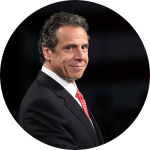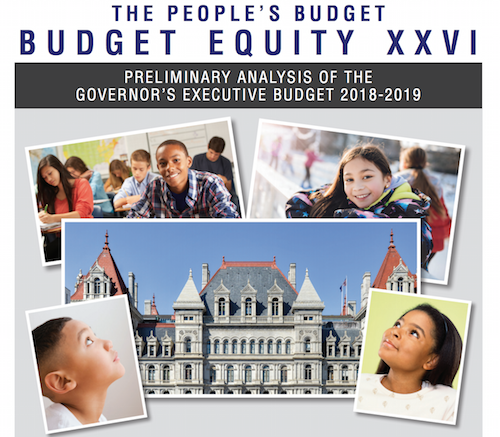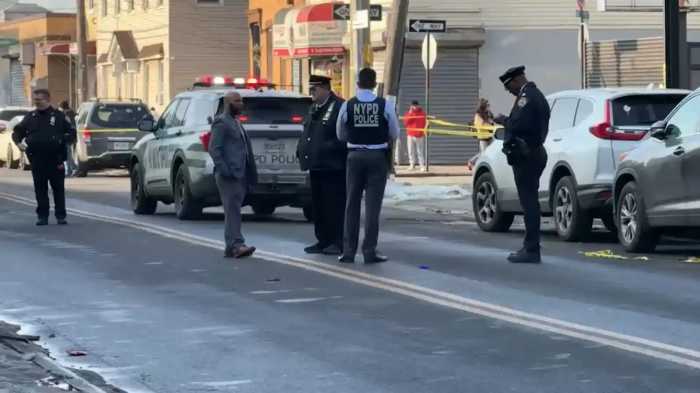New York State’s Black, Puerto Rican, Hispanic, and Asian legislative caucus recently released a 59 page report entitled “The People’s Budget: Budget Equality XXVI,” offering their analysis of Governor Andrew Cuomo’s proposed State Budget.

The caucus, which consists of 54 minority members of the Assembly and Senate, is chaired by Assembly Member N. Nick Perry (East Flatbush, Canarsie, Brownsville), who said “This document makes very clear that the Caucus stands with the people of New York in leading our communities to a society that is more equitable, empowered, progressive and bursting with opportunities for children and families to pursue and realize their dreams.”
The document details the differences between the Governor’s proposal and the caucus’ desires on a multitude of legislative issues, setting an agenda as legislators continue negotiations for passage of the State Budget later this month.
On issues of education, the caucus lamented that “Black, Brown and low-income students have been denied equitable opportunity for far too long,” and said the budget must provide money to improve New York’s schools, which are underfunded and disproportionately hurt minority students. The document notes that lawmakers passed a plan to increase basic operating aid to schools by $5.5 billion in 2007, but less than $1.5 billion was actually delivered.

The caucus also announced their support for statewide preschool programs, providing anti-racism education, increasing teacher diversity, and ending the “school-to-prison pipeline by limiting the use of harsh and punitive discipline and providing social and emotional support to students by expanding the use of restorative practices.”
The document laments what they see as tepid action on health care in the Executive Budget, and proposes several expansions of care.
“The Caucus supports establishing a comprehensive universal single-payer health care coverage program and a healthcare cost-control system for the benefit of all residents of the State of New York.”
They also detail their support for an expansion of the state’s Children’s Health Plan (CHP), which has helped make New York’s child uninsured rate one of the lowest in the country at 3%. Additional proposals include tax credits for caregivers, statewide laws supporting contraceptives, creation school-based health centers, and expansion of abortion rights.
The document critiques Cuomo’s proposals on Housing as having a “stunning lack of capital support.” The caucus calls to dramatically increase funding for low income and public housing. Additionally, the document criticizes NYCHA as failing to “provide many of its residents with apartments that meet basic standards of livability.”
A change to rent laws in necessary to provide stability and affordability across the state, according to the document. The caucus calls for ends to the “Vacancy Bonus,” which allows landlords to increase rent in stabilized apartments on it’s vacancy, as well as preferential rent schemes, which promote rent increases during a renter’s tenure.
In overhauling the MTA, the caucus calls on the Governor to provide access to disabled persons at every train station, which only 23% of stations currently do. They also call for a replica of the Airtrain to JFK airport, to provide the same service to Laguardia, as well as a shift to a flat rate on the LIRR and Metro North.
The minority caucus believes in the necessity of major criminal justice reform, as the current system disproportionately effects New York’s minority population. They make a case for limiting pretrial detention to extreme cases, removing the for-profit nature of the current bail system, the necessity to provide speedy trials, marijuana legalization, and reforming the parole and reentry process.
They also want to increase the rights of undocumented immigrants, ensuring proper representation in court and ability to obtain driver’s licences, as well as the LGBTQ population, making discrimination on the basis of sexual orientation and gender identity a hate crime.
In taking issue with the Governor on the issue of taxation, the caucus notes that “New York’s tax brackets are based on income distributions from the 1970s and 80s. In order to reflect explosive income gains by those at the very top—as well as address the wide income inequality in the state—tax brackets must be adjusted upward.” They go on to suggest additional brackets at $1 million, $5 million, $10 million and $100 million per year, which would raise $2.3 billion per year. Additional suggestions to changes in taxation include taxing corporations that practice stock buybacks, increasing land taxes, closing the carried-interest loophole.
The caucus hopes that it’s membership can leverage its membership and stature to impact the budget to include it’s priorities during the negotiation process this month.










